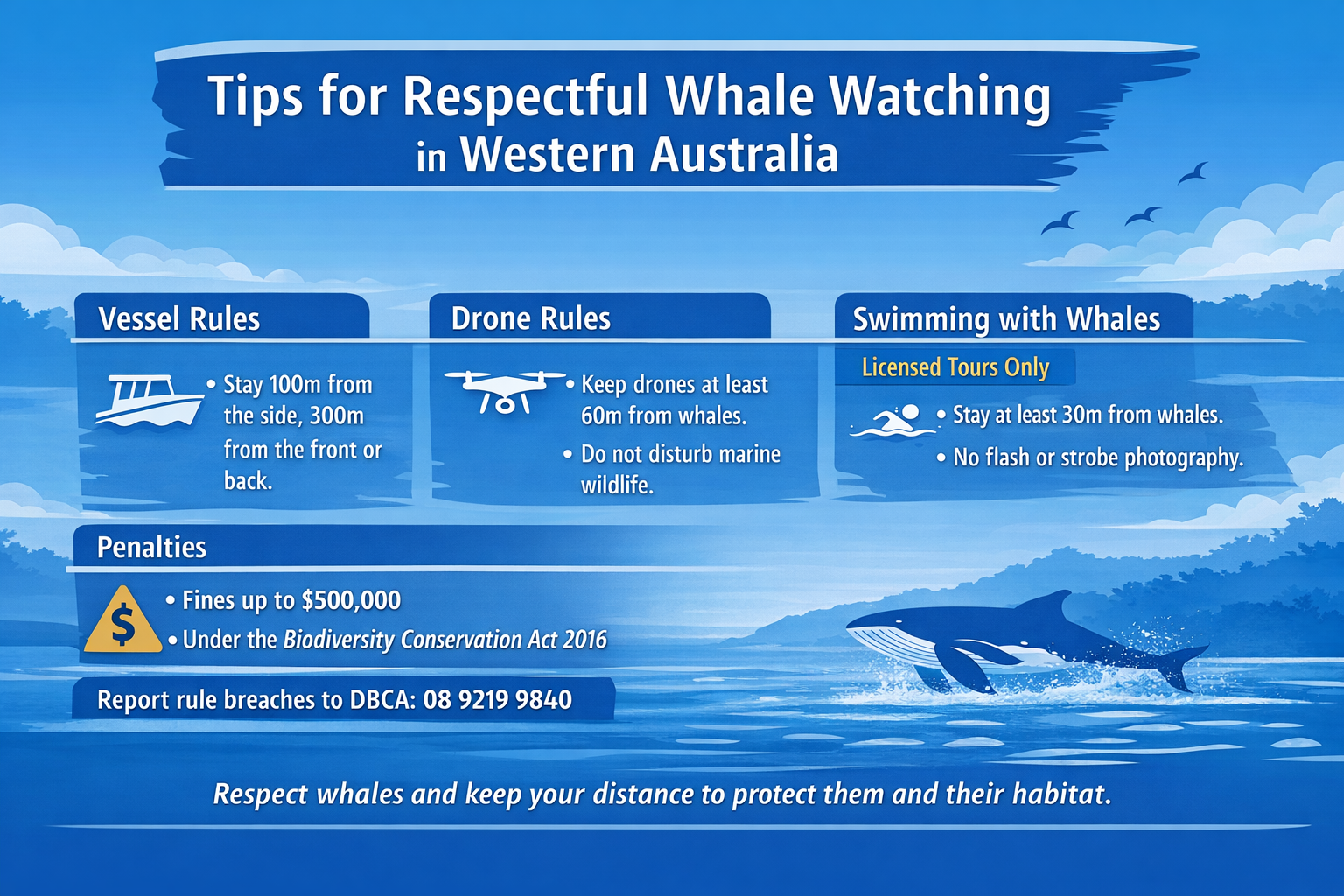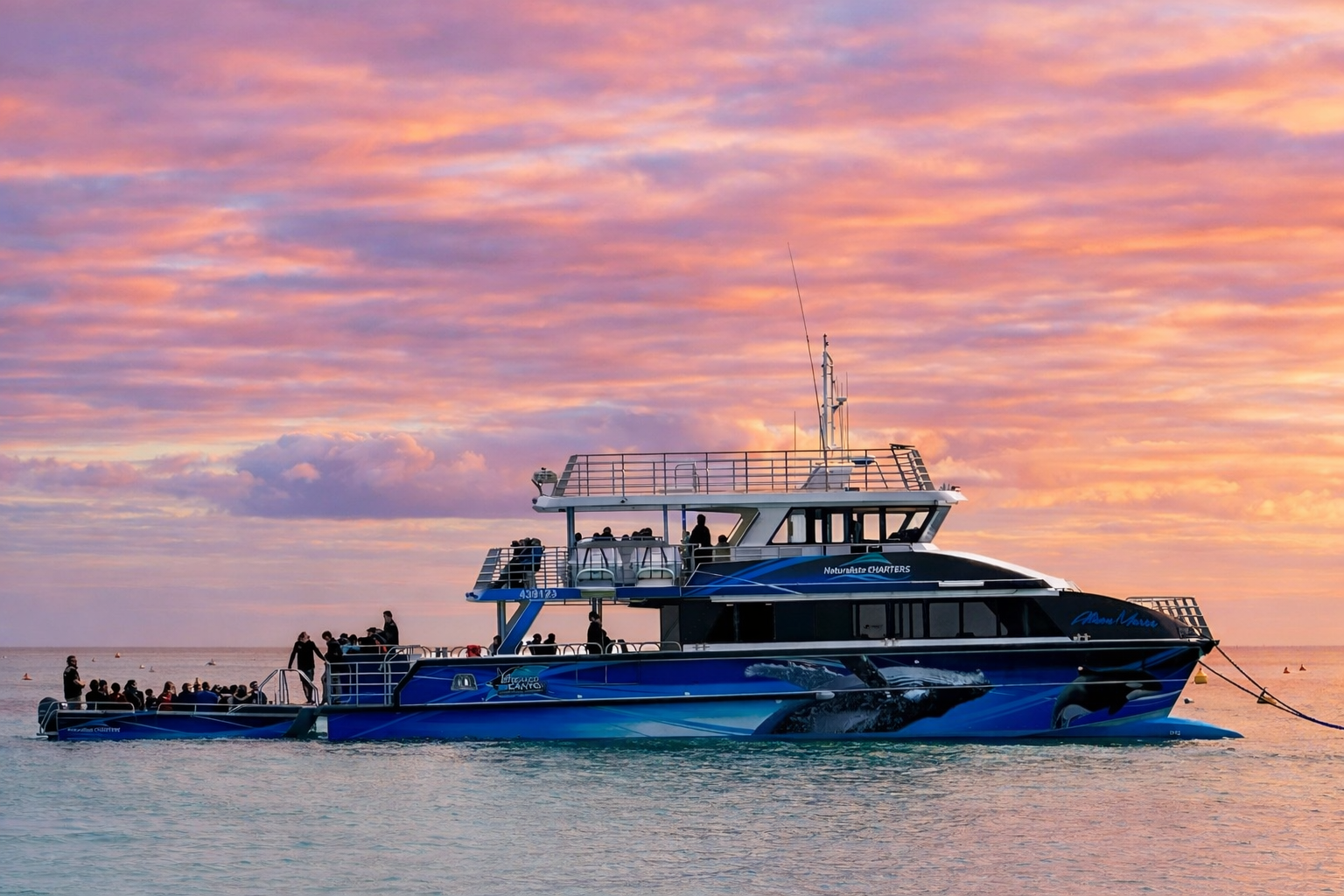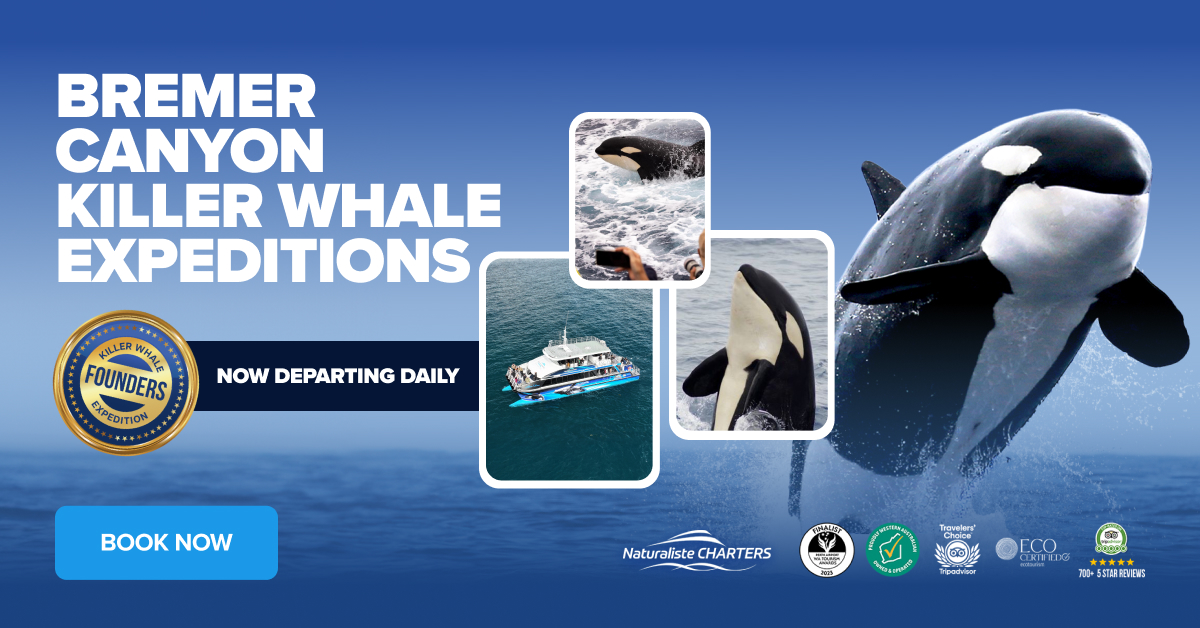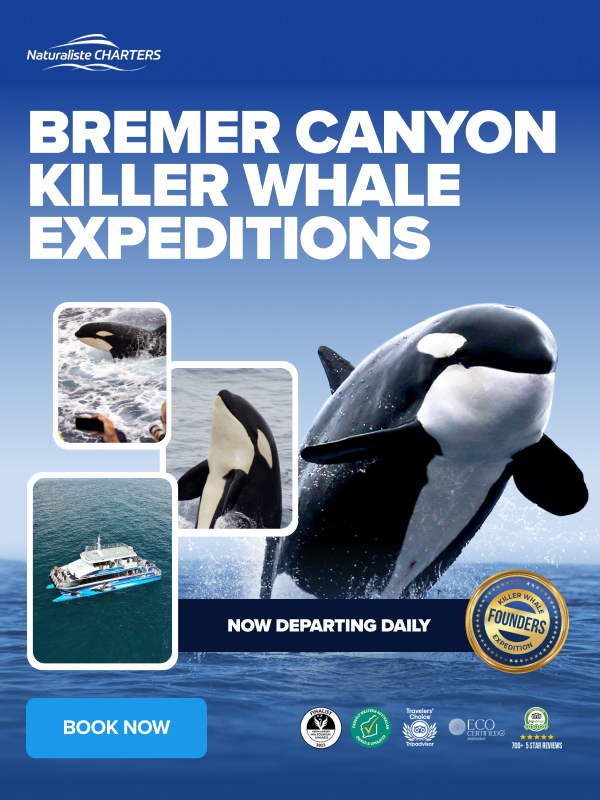18.02.2022
A KILLER DAY: WE WERE WRONG…IT DOES GET BETTER!
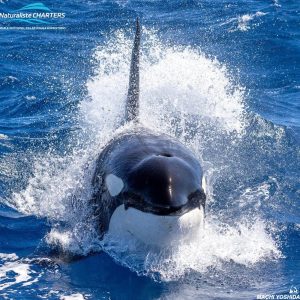
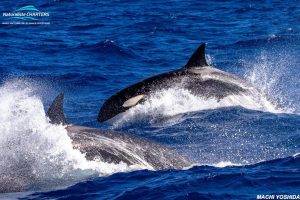
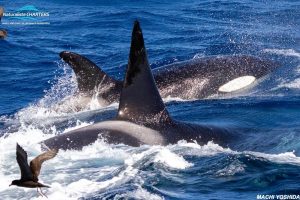

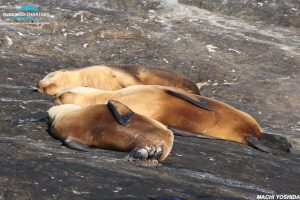
Yesterday’s encounters set expectations very high for passengers, with many of them being eager blog followers and orca enthusiasts. Our first wildlife encounter was with pilot whales which took us by surprise as we were in pursuits of orca blows, dorsal fins, and oil slicks on the horizon!! All morning we passed small slicks, the orca always that little bit too far off in the distance, birds swirling from above, anticipating predatory action….and did we get action!!
The orca began to surge, at a distance still too far away to identify which pods were present. As we came closer, we realised that they were uncommon individuals to the hotspot, who we encounter only a few times a season including males Kai, Fue, Moon and Irwin. Nearly every day we get asked where the orca go after April when the season ends, and this pod which seem to be more transient in nature in comparison to other pods which we encounter every day, were last spotted off Augusta by crew members. Sighting them again at the hotspot after subsequent years, despite knowing they travel elsewhere reinforces that these late summer months provide ideal conditions for the orca in the area and are the perfect time for sighting these magical animals in their natural habitat. Significantly, although this pod is not as well-known as others, they were also involved in the latest blue whale predation recorded at the Canyon! That is no wonder considering what was witnessed after an hour of following constant surges through the choppy swell, the orca gaining power and speed with every incoming wave. When the breaches began, we knew we were about to be involved in something special…
A passenger exclaimed, “there’s blood in the water up ahead!”. The distinct, organic smell of mammalian oil was thick in the air and swept all around us as we descended on an area of ocean which had been contaminated with the insides of a whale – a southern bottlenose whale, whose predators have been previously described to be ‘probably killer whales but with no prior information’. Infront of us was the stone, cold evidence. Tens of shearwaters tore through the air above, albatross fleetingly grappling at the bloody surface for their chance at a piece of meat. More than 35 orca from at least four pods, from every direction steamed into our immediate view, casting cascades of rainbows with their blows juxtaposing the fierce scene of the whale which had been skinned and whose carcass was being passed around between family groups. We watched on entranced by nature in its full force, merely metres from our eyes and spellbound by the orca who had so clearly coordinated this successful hunt and whose family orientated nature was so inclined to sharing their kill rather than territorially fighting each other off. It’s not every day you find yourself immersed infront of the power of countless apex predators, literally witnessing the cycle of life, but today was that day!

